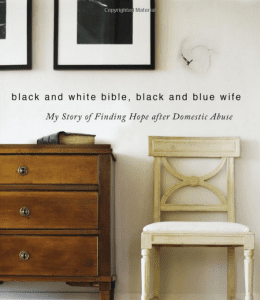 By Elizabeth K. Casey: For the past two years, I have been blogging on a variety of issues–and one specific issue I’ve written a lot on is the complementarian versus egalitarian marriage debate. I follow many writers across the spectrum of this discourse. Lately, there has been a flurry of activity on social media intended to defend marriage. As I scroll through Twitter, I find article after article about how marriage ought to look and I find myself growing weary. Lately, I’ve see a big push (yet again) for women to be submissive wives and keepers of the homes, if they want to have biblically based marriages. Titles like, “Building a Marriage Culture | Wives, Serve Your Husbands,” bring up old wounds–of trying to fit this model and failing miserably.
By Elizabeth K. Casey: For the past two years, I have been blogging on a variety of issues–and one specific issue I’ve written a lot on is the complementarian versus egalitarian marriage debate. I follow many writers across the spectrum of this discourse. Lately, there has been a flurry of activity on social media intended to defend marriage. As I scroll through Twitter, I find article after article about how marriage ought to look and I find myself growing weary. Lately, I’ve see a big push (yet again) for women to be submissive wives and keepers of the homes, if they want to have biblically based marriages. Titles like, “Building a Marriage Culture | Wives, Serve Your Husbands,” bring up old wounds–of trying to fit this model and failing miserably.
From Arise
When I first met Ray, the man I would later marry, we became fast friends. He was one of the few men who would engage me in political and religious debates–and he really listened and valued my opinions. He never felt threatened by my strong personality nor did he ever tell “women jokes” when I made a strong point he couldn’t counter. (Other guys would often make some variation of “get in the kitchen where you belong, woman” in response to any valid arguments I made). He was one of the first men I had ever met who really enjoyed talking to me about theology, and felt comfortable asking me questions. Moreover, he would tell me that he learned a lot about the Bible when we hung out together! Is it any wonder that I fell in love with this man?
I grew up in a conservative home and church. Stay-at-home moms were glorified and I could always sense the strong gender roles the church prescribed for its members. I remember feeling early on that I didn’t fit what a feminine woman was supposed to look and act like. I was such a “tomboy” and usually preferred to hang out with the guys. Not only did I prefer camping over a hotel, but I also preferred talking theology over discussing… well, whatever girls were “supposed” to enjoy chatting about.
I was taught complementarian theology my whole life. After a while, I noticed that when I shared my dreams and aspirations with leaders in the church, the usual response was, “Well, you’ll probably get married, have kids, and be a stay-at-home mom.” When the guys in my youth group stated similar dreams to the same leaders, they were always met with approval and encouragement. It left me struggling, and questioning what was wrong with me. Why couldn’t I just do what I was supposed to?
Fast forward to college, where I met Ray. We couldn’t have been more opposite. Where I preferred camping, he preferred a five-star hotel. Where I loved playing sports, he preferred being indoors or working on his car. Ray and I both struggled with how femininity and masculinity were portrayed and defined in church. We felt it the most when churches announced their men’s and women’s retreats. Men went to go act manly–spending a weekend in the woods–camping, hunting, hiking, and playing sports. Women would go to a spa or hotel–and get together to talk about their feelings, do a Beth Moore Bible study, cook, and generally just chat and hang out. It was so polarizing for us. The men’s retreat sounded amazing and right up my alley, whereas the women’s retreat was torturous. I mean, talk about our feelings? No way! I didn’t do feelings, though ironically I now work as a therapist!
When Ray and I got engaged, we started marriage counseling. One session has always stood out in my memory. We discussed our roles as husband and wife, particularly that I was to be submissive and Ray was to be the leader. That meant that he should listen to me when we had a disagreement, but in the end, he would make the final decision. When we got in the car, I turned to Ray and asked if he agreed. He said, “Absolutely not. I always want to work it out with you, to find the compromise. I just can’t make a decision that you aren’t one hundred percent on board with.”
Even though he made that commitment to me before we got married, I struggled a lot through our first year of marriage with guilt and shame. I believed that if I didn’t practice and live out male headship in my marriage that I would be actively sinning, and I would somehow ruin our marriage. I asked different people what it meant to be submissive and what it meant for Ray to be the spiritual leader. I put undue pressure on him to “lead” our quiet times, though not really even knowing if we were doing it right. After a year of marriage with nothing working, I decided to start studying theology–and the differing views theologians had on verses addressing marriage. The more I studied, the more I realized that a complementarian marriage just didn’t fit us as a couple. It was like putting a square peg in a round hole. As we switched over to an egalitarian marriage model, we found freedom to be the unique individuals God had called us to be.
The only tough part about that transition was that many people felt the need to express their dismay with our decision–and even used guilt to manipulate us into falling back in line. However, most people did not realize that I had done hours and hours and weeks upon weeks of research on this issue. If asked, I could point out my many issues with complementarian interpretations of marriage verses. Instead of giving us an opportunity to explain our reasoning, most people try to convince us that we are wrong.
In the end, we chose egalitarian marriage, because it best reflected our needs, desires, and personalities as a couple. I no longer have to constantly question whether I am “being submissive enough” and Ray doesn’t have to feel guilty that he isn’t being a good enough spiritual leader. All in all it, it brought much relief, and egalitarian marriage brought us closer as a couple.











